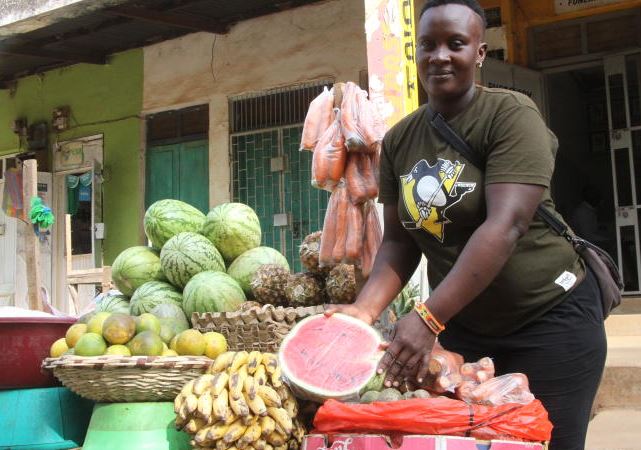×
The Standard e-Paper
Fearless, Trusted News

A fruit vendor at Sokomjinga market in Migori town. [Caleb Kingwara, Standard]
The end of the Covid-19 goodies has opened a new floodgate of economic difficulties, with consumers grappling with increased prices of basic commodities.